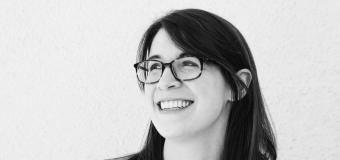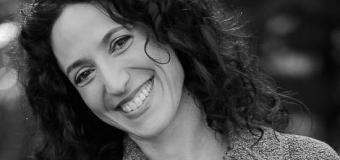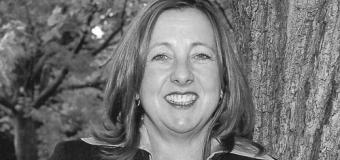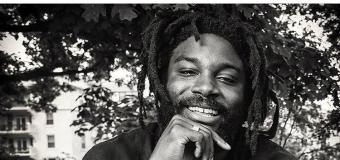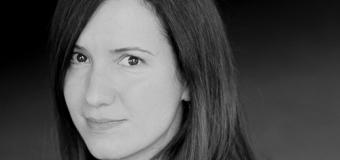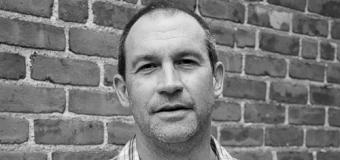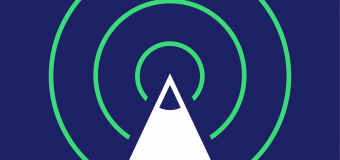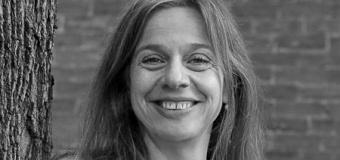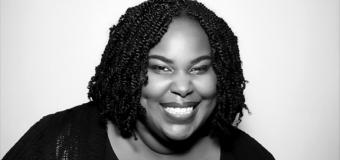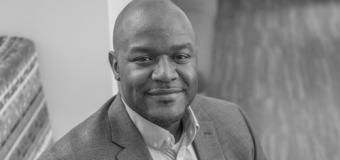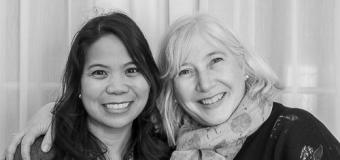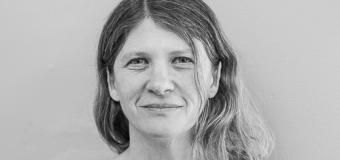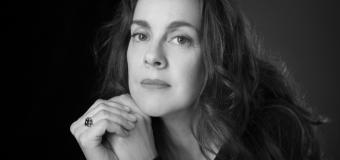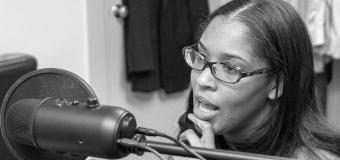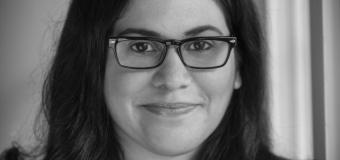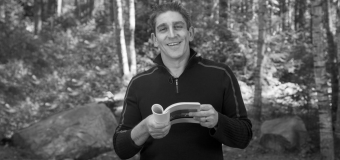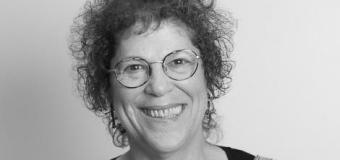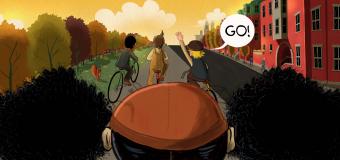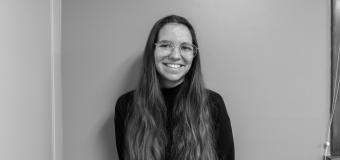[music]
Announcer: This is Why We Write, a podcast of Lesley University. Each week, we bring you conversations with authors from the Lesley community to talk about books, writing, and the writing life.
Emily: I'm Emily Earle, and I'm the social media specialist here at Lesley University. I'm here today with Jami Brandli, an award-winning playwright and a faculty member in our low-residency, MFA in Creative Writing program. Her work has been published and produced on stages here in the US and internationally. She's based out of Los Angeles, California. She's traveled here to Cambridge for MFA summer residencies. Jami, thank you for joining us today.
Jami: Thank you for having me.
Emily: [Chuckles] My first question is one I've been wondering for a while actually, then maybe we can go back and touch on how you started writing and what lead you to playwriting. I'm curious as to what the scene is like in Los Angeles as opposed to New York. When I think stage it is in most part of New York and when I think film, I think L.A., Hollywood, so could you get in into that a little bit?
Jami: Sure. I'm originally from New Jersey. I'm a very East Coast person. I went to Emerson College, so I spent a lot of time in Boston. I moved to L.A. about 11 years ago to pursue the writing dream with TV and film in mind. As a playwright, I found that the theater scene is really great, and it just has become stronger over the years because more playwrights are coming from New York to L.A. to write for TV. All that good TV you're watching, most of them are playwrights that are writings their shows.
They've come from New York to L.A., so because of that, there's this influx of really great playwrights that just have made the scene really robust. I've been there for about 11 years, I have made many deep relationships with theater companies. I just had a production of a play called Through the Eye of a Needle at The Road Theatre in Los Angeles. It was actually around the corner from my apartment.
Emily: That's convenient [laughs].
Jami: Yes. All that drinking I did, it was kinda crazy, but it was great.
Emily: [laughs] A quick walk from home. [crosstalk]. You know what, that's what you got to do, it's perfect.
Jami: Exactly, and I have another play, BLISS (or Emily Post is Dead!).
Emily: I read that this week and it's fantastic. I will get into that. I loved it.
Jami: Thank you. Just very quickly. BLISS (or Emily Post is Dead!) is getting production in Los Angeles this fall with Moving Arts Theatre. Because of my long relationship with Moving Arts as a playwright doing other things, this only helped with the full professional production. If I'm giving any tips out there to you writers, it's still about networking, it's still about building the relationships. They may not pay off right away, but it will eventually build into something else.
Emily: Did they come to you?
Jami: Yes, they came to me. They came to me and same thing with The Road Theatre. They wanted to produce my play, yes.
Emily: Great. Cool. Do you think with that kind of influx of writers coming from New York, is it getting more competitive?
Jami: I think in one way, yes, but I don't want to look at it as a piece of pie. I don't want to see it as opportunity being taken away from me versus people coming to the table. As you're right to say it's like when I think Los Angeles, I think TV and film, you don't necessarily think theater. L.A. used to have this reputation of being like theater, looking down their nose like, that's not theater. Now it's like, no. We are becoming a really great theater town. We are a great theater town, we're just becoming a stronger theater town, yes, because it's always New York, Chicago. Now it's like New York, Chicago., L.A. for sure.
Emily: That's awesome. Cool. It's a great place to be. Excellent.
Jami: Yes. Especially when you are around the corner from the theater.
[laughter]
Emily: Nothing can beat it right? That's what you got. How did you get your start as a writer?
Jami: How did I get my start? I grew up in the restaurant industry. I grew up living the dream of every kid who grew up in the '80s. In that, my parents had a pizzeria and an arcade with 40 video games.
Emily: In New Jersey?
Jami: In Jersey, baby.
Emily: That's the main thing [laughs].
Jami: I'm the first person to go to college, to get my undergrad degree, let alone my master's. I grew up around storytellers. Granted, I shouldn't have been around all of these people at a very young age because I was always fascinated by the stories that they told. I have a very large family and I have storytellers in my family as well. I just for whatever reason started writing my own stories as a kid. When I graduated in high school, I went to Emerson College and it was a big deal to me like, "I'm going to get my BFA in creative writing." Like what is that? That's nothing.
I had insomnia like crazy. It's like "Oh my god. I have a degree in crea--." "What does that even mean?" I just continued to do the work in theater where I grew up. In North Bergen, New Jersey it's right across the Hudson from Manhattan. I was basically a mile away distance-wise. My uncle and my mom would take us to see Broadway shows. Once at high school, I joined the Future Business Leaders of America just so I can see the Broadway shows because they took a school trip.
[laughter]
Emily: That's the reason I would do it.
Jami: Yes. Playwriting was my first love, and then I went to fiction for a little while and then I went back to playwriting. I fully embraced it and I loved it. I'll tell you why I loved playwriting. Because I love the isolation of working in a play, and then I love the collaboration of working with actors and directors and dramaturgs to bring the piece to the next level. I always tell my students, "You cannot be precious about everything, because then you'll never make any progress in revising. That is not to say that you shouldn't hold truth to the essence of what you want to do."
If an actor is saying again and again and again that he doesn't quite understand this line, it may be because it's your fault, playwright. You need to look at it versus, "This actor is just not getting it."
Emily: Oh that's interesting.
Jami: Yes. That's part of the collaborative. I love collaboration. The discoveries that I've made about my plays, just certain things around, I was like, "Oh my god. I didn't see that." I could have only seen it by this actor getting up and doing this thing. I'm like, "Oh my god, yes." Now I'm putting it into the play. These are gifts. I consider them big gifts.
Emily: Okay. Let's get into it. You are writing something called the Reclaimed Greek Myth Cycle. I want to talk about that because it's pretty unique. Where did that idea come from? Why are you doing it?
Jami: Why am I doing it? The short story is, I had just finished writing and developing a play called Technicolor Life, so I was like I want to write something, I want to do some sort of like adaptation. I was like maybe I want to do an adaptation mashup. I was like you know what, the Greeks going back to the beginnings of theater, these female characters, they are all crazy, psychotic, murderers. I think I know why that is, because a male wrote them.
I wanted to reclaim that. The first one in the cycle, BLISS (or Emily Post is Dead!). I know I wanted to do something with Madea, like the heavy hitters, Medea, Clytemnestra, Antigone and then Cassandra with Apollo. I was like you know what, I absolutely want something with feminism and civil rights. I was like you know what, let me see. Then, my Aunt Barbara tells me this story. In the play, they pop amphetamines which is what they did back in the day.
It's 1960, New Jersey. Back in 1960 in New Jersey. It didn't come to me until my Aunt Barbara told me the story which is, she and her three or four sisters in the late ’50s, early ’60s, We're a working-class family kind of not rich but not poor. Her sisters shared one vacuum and inside that vacuum they would transport their bottle of uppers. One sister would vacuum then take some pills, put it in the vacuum, go to the other sister's apartment vacuum, take pills. She's like, "Yes. There was just one doctor that the elder sister got the prescription for and the doctor, he would just keep writing them regardless of how fast these pills were going. You've got four women taking these pills. I said, "Barbara, I'm going to write that a story." She's like, "Why do you think I'm telling you?” I was like, "Great." For me, sometimes I just get hit with something and I'm like, “That's what I'm going to do. That is what I'm going to do.”
Then, everything fell in line with civil rights, with the movement before the precipice of civil rights, the precipice of feminism and then, of course, Emily Post with etiquette. I believe in etiquette, I don't think you should be a monster at the table and do whatever you want but when etiquette gets into the way you're supposed to live your life which is what Emily Post did, to me it's golden handcuffs. It's like you want to believe. It's like you look at these. I think about it now where I don't understand how women wouldn't want to be independent.
They're choosing to possibly live in a magazine because it looks nice. Emily Post presented all of these nice things. “This is how you sit at the table, this is how you go on a date, you shouldn’t be socialized with a certain person of color." She went that far, yes. I was like, this is some BS and I'm going to blow it up. I want to blow it up. That's what I did for that.
Emily: In that play, I noticed themes of rebirth and cycles and a little bit of history being doomed to repeat itself. One of the characters, I'm sorry I don't remember which one that asks her what the future is going to be like.
Jami: It's Antigone.
Emily: Antigone, yes.
Jami: The Antonia carrier. [laughs]
Emily: Sure. She sees the future and sees this year and she goes into this mini-monologue about how horrible things are [laughs]. What do you hope is the takeaway from that? Is there hope?
Jami: The ending is hopeful.
Emily: The ending is hopeful.
Jami: Yes.
Emily: I do believe you're hopeful.
Jami: Oh my god, otherwise I wouldn't get out of bed in the morning. It's a marathon not a sprint keeping the hope alive and fighting the good fight and moving society forward with everybody at the table, not just certain people but I think it takes courage to break out of a predetermined cycle. The women of that time, I know we all are standing on their shoulders. What they did, all the scary things that they had to do to break out of these societal confines. That wasn't easy. It's like you just think about your life right now.
You want to do this thing, but it doesn't seem to fit the path that I'm supposed to take and therefore it's scary. You need the courage to be like, “F this, I'm going to do this regardless of what may or may not happen.” That's to me what the story is about, and some women make it, some women don't.
Emily: Alright. Maybe switching gears a little bit and we can go back to this because I just am so obsessed with the idea, [chuckles] it's very cool. You're active on social media?
Jami: Yes.
[laughter]
Emily: We follow you on a few things. How do you navigate that space as a playwright, because it can be your place for promotion and visibility? It's where you could get positive words out there about yourself, but in social media and in 2018 it's also an echo chamber of depressing news and activity. How do you strike that balance?
Jami: It's funny because at the residency we just had a panel about you and technology as a writer and I talked about this. Sara Zarr who was writing for young people. She talks about she has these two personas; the Sara Zarr the writer of YA literature; and the Sara Zarr, the person. Two separate entities. I don't do the separate entities. I'm somewhere in the middle. Social media is a fantastic tool to get the word out about your productions or publications, but all of my plays are political in some way.
That's why it blends together with what my plays are about and how it basically converges with certain things that are happening today. There are also other opportunities bit like the New Play Exchange. It's a great platform for evening the playing field for theater-makers. You can put your plays up there and the theaters are looking for this. You don't need representation. I just got a shout-out for my play ¡SOLDADERA! that the person curating every three weeks a New Play Exchange has somebody from the theater community curate a list of plays to look at, like, “Look at these plays.”
I passed the Bechdel test with flying colors. What was amazing about that is I didn't even know that until one of my friends tagged me on twitter and said, “Hey, great to say you on the list.” I was like, “What are you talking about?” Then, I was like now I get to spread the word, "¡SOLDADERA! passed the Bechdel test." You know what I mean?
Emily: Can you just get into what is the Bechdel test?
Jami: The Bechdel test is basically a test that was- I keep blanking on her first names.
Emily: Alison. Alison Bechdel.
Jami: Alison Bechdel, yes. Fun Home, which was amazing. Basically, it's a test to have- I don't remember the exact requirements, but the women in the scene cannot talk about men and specifically white men and how they relate to men. It needs to be-
Emily: Two women talking to each other.
Jami: Two women talking to each other. It was a wonderful shout-out for the play.
Emily: That's great. Switching gears again [laughs].
Jami: Switch all the gears.
Emily: I know. What attracted you to the low-residency model and teaching here and why do you think it makes for an effective teaching and learning environment? Do you think it makes for an effective teaching and learning environment?
Jami: It does. I was actually approached a million years ago by Steven Cramer to create a stage and screen track.
Emily: Really?
Jami: Yes. That was a really interesting opportunity and I was just about to leave to move to L.A. I was like, “Oh." He was like, “No problem, we'll just bring you back twice a year.” I was like, “That's amazing, because I love Cambridge." I lived in Davis Square for years and years. I was like, “Okay.” With the help of Barry Brodsky and Kate Snodgrass, and later Sinan, and then later Ronan.
It was a really great opportunity for me as an educator to build a program that I would want to go to. When I got my BFA and MFA at Emerson College- Emerson College with MFA you're there on-site, it's an interdisciplinary program so I didn't study focused in theater. You know what I'm saying? I got to create something that I would have wanted to do myself. One of the things that became very clear which is, thankfully we're in Boston, Cambridge is that we need our writers to work with actors and directors.
It's the isolation and then you have to have the collaboration. That separates us from a lot of low-residency models for Stage and Screen. Luckily, we're in a great town with talented actors and directors, so we have something they called the play labs, where our fourth residency- going into their fourth-semester students, they have a reading of one of their full-length plays with actors and it's done in the public manners. It's done in the Marran Theater with actors and a director. The playwright gets to talk to the director to get a different perspective other than just their mentors. Then, that qualifies the play to be submitted to the Kennedy Center American College Theater Festival. Many of our students go to the regional festivals for the Kennedy Center, and we've had more than several actually win national awards. It's because of this, it's because of the Lesley program. Just to shout out to Kate Snodgrass, she does all of the casting because she knows everyone.
I help get all the information and then she does the casting. It's a great experience for the students.
Emily: Sure. That's great. If you had any advice to aspiring playwrights, [laughs] what would that be, any networking?
Jami: Networking for sure. Everybody's path is different. There is no one path to the thing that you think success is or what you want your success to be. You always look at what other people's successes are, and that's not going to necessarily be your success. For me, my advice is to do the best that you possibly can to create a life where you can write or you can do the work. Doing the work is number one, because without the work who cares about networking? Because really you've got nothing to show.
That idea of creating a life that enables you to write means that you don't have any excuses, like, "I'm too busy to do this." It's scary. I'm being 100% real talk here. It is scary to commit to a life that allows you to write like a professional. There's going to be a lot of dry seasons, and you have to weather that storm of dryness because it should always be about the work because eventually, something is going to happen. It's not going to be immediate.
I think the most dangerous myth is the myth of talent, either you have it or you don't. If you have it, it happens when you're 25. If it doesn't happen at 25, that doesn't mean you're not talented. That's so rare. It's so rare, and we build it into this mythic proportion of like, "If it doesn't happen for me then it's never going to happen." That's not true. Most of my friends and myself we're full-on adults. We have been doing this for a long time, and everybody's success happens in different ways at different points of your life.
I struggled with this when I was getting my MFA in my 20s. Like, "Well, do I have it or not?" Yes, of course, I have it, but that doesn't mean that my talent is validated whether I get success early or not in my career, but that's what a lot of people do.
Emily: Talking about dry spells and dry seasons, how do you not give up? If you're going through this thing and you're like, "I don't know if I can do it anymore." What powers you through? How do you recharge your batteries or find creative energy? It's hard.
Jami: It is very hard. It's not easy. I meditate. That is very helpful to me, to just let some stuff go because you start to feel a certain way and you've to let it go so you can do the work. I think the relationship that you have with your writing, the way that you look at it will help you through it. I look at my relationship to writing as the most important marriage that I'll ever have, and I'm divorced.
[laughter]
Emily: Perfect. Priorities.
Jami: Recently, and I wrote my divorce play.
Emily: Was that O?
Jami: Yes, that was O
Emily: That was great, too.
Jami: It is your perspective and how you look at it. Nobody can make you feel a certain way except yourself. You can't make somebody happy, you can't convince somebody. It's on you. You choose to look at your writing as one of the most important aspects of your life. If that is true, then you show it that respect. If you don't show it that respect then how do you expect to weather the dry spell? Just like all relationships have their ups and downs, right?
Emily: Yes, of course.
Jami: The minute it gets hard, do you leave or do you stay and try to work it out? That's the way that I look at it, for sure. It's not like concrete it goes like get up at 6 a.m. and blah, blah, blah, and have your coffee. I don't believe in that, because everybody's process is different. People, they want the answer and that answer does not exist because everybody is different and everybody's success will come at a different time. That's your perspective, the way that you look at writing and the way that you relate to it in your life.
That's my piece of advice, and I'm like, "Yes, you have to look at it that way because I don't want to hear you complaining that you can't do it." Why can't you do it? Because you haven't paid it the respect that you're supposed to.
Emily: No, I think that's good because I think it's almost a more universal piece of advice. It speaks to the human element. It's not like, "Get up at a certain time." It's like, "No, this is how you're feeling." [laughs]
Jami: Exactly.
Emily: The divorce play. [laughs]
Jami: O: A Rhapsody in Divorce?
Emily: Yes. Part three in the Reclaimed Greek Myth Cycle. You call that a new old story for our modern time. That's a line in the play?
Jami: Yes. That's straight from the Odysseus.
Emily: Really?
Jami: Yes.
Emily: Okay. I think this gets back to what we were talking about before, and just how these things keep coming up. I guess, again, they are a universal human theme. How was it for you to put that to paper?
Jami: I really opened up the veins and the whiskey for sure.
Emily: A recurrent theme. [laughs]
Jami: Yes. It was a recurrent theme. That's not advised. That's a recurrent theme in my life. It was cathartic. That was the most personal play I've ever written. O: A Rhapsody in Divorce. I reclaimed the Odysseus myth. It's a woman in her 40s who finds herself unexpectedly in a marriage blow up, and it's because the husband won't leave the house. She goes on this epic couch-hopping journey to find herself and define what home looks like later on in her life. That is exactly what happened to me.
He wouldn't leave, I went on this crazy couch-hopping journey for about five months, and I learned a lot about myself. With The Odyssey, Odysseus is trying to get home and it takes him 10 years to get home and he finds himself with the Cyclops. He finds himself with the witch, Circe. He finds himself with Calypso, the lover that keeps him trapped for many, many years. You can start to see. If you don't know the Odysseus myth you can-
Emily: I was trying to hearken back to my sophomore year of high school [laugh] version, and what's coming up a little bit was, "Wait a minute. Who is this person? Who is that person?"
Jami: The sirens, they're in The Odyssey and they're calling to the men. If you listen to their calls you crash onto the sea. For me, it's the shame storms, because if you give into shame you're going to die and this will crash you onto the rocks. I'll tell you my process about that place because that was very quickly. I belong to something called the Playwrights Union in Los Angeles, and it's a union of 30 playwrights. Every February we have a playwriting challenge, where you write as much as you can of a play during the month of February.
I was like, "You know what, I'm going to write my divorce play. Going to do it." I wrote the first-- Mind you, my ex is a playwright who used to be part of this. He now lives in Chicago. It was like super meta, it was really interesting. I write 27 pages in a month because I have the production of BLISS in San Diego and then I have my other productions and so I wasn't able to get as far as I could. In June, the people who are able to finish the play, have a public reading of that play. When my play Through the Eye of a Needle closed I was like, okay, now I'm going to write the rest of the play. I wrote 64 pages in six days.
Emily: Dang.
Jami: That was crazy. I call it my writer's cave. I go into my writer's cave. I wear a baseball cap. I don't wash my hair. I rarely take a shower. I am just in my cave. It was an alternate universe almost because it was so personal. If you read the whole play, there are these two scenes with the husband, and I was on the floor because those were straight out of real life. I had never really done that before and then it gets this public reading.
It was a very meta experience and because half the people that were there and these actors were amazing. They got the last 16 pages of the play two hours before they went on.
Emily: Wow. It was incredible. Everything was, oh my god. Everything is great.
Jami: You're reading the very first draft. [crosstalk] I remember it. Yes. The reading happens and it's a funny play on the page. When you see it, it's even funnier.
Emily: Nice.
Jami: I was like, this is like meta. The actress who had to hold for 15 seconds because people were laughing and I was like, "Oh my god." I was like, "They're laughing at my pain but it is funny. I know it's funny, but I didn't realize it was this funny." I became part of the reclaiming of the Reclaimed Greek-
Emily: That's how you're saying that is meta.
Jami: That so meta. I was like, "Can I have another glass of wine?"
Emily: That's crazy.
Jami: It was a great almost out-of-body experience that I had. [laughs]
Emily: This is part of a series-ish. They can stand on their own, obviously but it would be great if they could be in repertory.
Jami: Oh my god, that's my dream.
Emily: I was reading and then I was like, this would be so great if they were just running on top of each other.
Jami: That's my dream. The second one is called Medusa's Song, and I wrote that last year. It's about a campus-college rape because Medusa was raped by Neptune and then the goddess Athena blamed her and turned this the fair maiden into a gorgon. I'm like that’s some BS. It goes back thousands of years before the Bible even existed, these stories have been around. The problem about that play, which I have discovered is that it's not funny.
I was like because BLISS is very funny and O: A Rhapsody in Divorce is very funny, Medusa's Song is not funny.
Emily: Is that okay?
Jami: It's okay but it's interesting it's not getting the love that BLISS and O are getting. It doesn't quite live in the same heightened reality world, you what I'm saying, it's a reality?
Emily: Yes, absolutely.
Jami: I have to look at that and go, hmm. The other one that I'm going to write, which will be next year, is Visiting Hours, which I'm taking the Persephone myth and setting it in a psych ward. It's going to be about women in depression. That's going to be very personal because my mom rustles with that and it's been part of my life for a very long time. That's going to be another one where I'm like, I'm going to be on the floor, but I need to make this funny because I know I can do it. I know I can do it. I could totally do it.
Now I know going into it being like, this cannot be all doom and gloom, whereas with Medusa's Song there is this, I'm like, "Yes, I don't know what it is." That's part of being a writer, being like, "You know what, this doesn't work. I need to go back to the drawing board and really figure out what is not working and how can I make it work."
Emily: The themes in these stories, they're popping up today.
Jami: I know.
Emily: You said, "This goes back to before the Bible," but it also goes back to yesterday.
Jami: Yes, that's exactly right. That's why I'm like, "People." [laughs]
Emily: I know. It just is incredible that it's out there. Like I said this part of it is universal. What are you hoping to say through that? Just awareness?
Jami: For me, it is ultimately about women not giving their power away anymore, taking it back, taking it. Sometimes it's just taking the power because you've never done it before and breaking out of these cycles and creating your own path. Creating your own path, because it's around today with advertisements and just like the life that people are trying to sell to women and like you need to be a particular way. It's the scary thing of the feminine mystique. The feminine mystique is like women don't want to be in charge.
They want to be frail and they want to be taken care of. The feminine mystique, it's here, it's obviously very much a lot. It's very much alive. You as a woman, it's like, do you believe in the feminine mystique or do you want to be independent and an individual and what does that look like? I know women who want to be taken care of, it's just easier. Then it's like, good luck with that when it doesn't work out, when the thing that you thought was going to work out, doesn't work out, now what? Now what? No longer giving your power away, taking it back.
Also, obviously, living with men. I talk about my dream is eventually our society getting to the point where we have, it's a round table and nobody is at the head of the table and everybody's stories are welcome. Even the unwelcome stories are welcome because that's part of life. Some of the pushback that I get in particular with some male reviewers with BLISS is I'm touching a nerve. I'm touching a big nerve and what they do is they lash out.
They're lashing out and I'm like, "You're welcome that you feel uncomfortable because this is the way that I have experienced the world and I know most women have experienced the world." They get upset about it. They don't want to accept that that is the way it is. It's about taking back your power or taking power if this is the first one you're actually taking power and creating your own path. Breaking out of these cycles, breaking out of these confines, breaking out of the golden cage.
It may be gold, but it's still a cage, and embracing what's scary about a life that you want to live, not the life that you think is predetermined for you.
Emily: What makes the theater a unique space to house these stories and tell these stories?
Jami: What I love about the theater is it is alive. There's a sense of community, especially when you see a really great production. For me, it's a transcendent experience. It's like, it's my church. We're all feeling it together and we know that this is the only performance of its kind that will ever happen. It's here, it's now, but then it's gone. It's like every human emotion of joy and sadness and being present, but then also being like, I'm never going to see that again. That's for me is the theater. I think all good art can change hearts and minds. For me, that's the best place that I could have my art hopefully, change some hearts and minds.
Emily: That's awesome.
Jami: [laughs]
Emily: I'm a theater person, so it hits a nerve. It's so great. What else are you working on coming up? Where can we find you?
Jami: I see what you're saying. I was like, "Where can you find me"?
Emily: [laughs] On campus.
Jami: What am I working on? Yes. I have BLISS (or Emily Post is Dead), is getting a joint world premiere. It had its first production in San Diego and now it's getting a production at Promethean Theatre in Chicago. Then, in the Fall, BLISS will be produced in Los Angeles by Moving Arts, so I have a pretty big next 6 months. I'm also a playwright that's doing some TV development, so that's another thing that I am moving forward with, a particular project that I can't talk about.
Emily: [laughs] Can you elaborate?
Jami: I can't. No, I can't. No, I cannot.
Emily: Exciting none the less.
Jami: [laughs] That's really exciting. What I'll also do is I will begin development with O: A Rhapsody in Divorce. This sounds kind of cocky, but, I know it's the best first draft I've ever written because I lived a lot of it. There's a whole other thing. I'm definitely going to be workshopping it in L.A. I'm excited to go back in and be like, "I have a couple of days with these actors and a director." I will go in and I want to go deeper. I feel like the structure is there, but I want to go deeper. That's going to be fun. It's a lot going on.
Emily: Going back to work, that's a good thing. [laughs]
Jami: Back to work.
Emily: Do the work, get to work. [laughs] Awesome. Anything else that we have not touched on, while we're at the microphone here, while we have have you.
Jami: Yes. If you want to find me on social media.
Emily: We would love to find you on social media.
Jami: Yes. My handle on Twitter is @jamibrandli, J-A-M-I-B-R-A-N-D-L-I, and on Instagram, it's the same thing. I'm the only Jami Brandli in the world, as far as I know of.
Emily: Is that true?
Jami: Yes. I'm certainly the only Jami Brandli playwright in the world, which is very nice for me.
Emily: That's helpful.
Jami: Yes, it's very helpful, because when you have a common name it's like, "Oh." When somebody Google’s me, I come up right away. I'm pretty public on Facebook, obviously.
Emily: Yes, I believe we follow you on Facebook. Yes, all the times.
Jami: Follow me on Facebook, it's Jami Brandli.
Emily: [laughs] Very cool.
Jami: That's what it is, yes. Thank you so much for having me here.
Emily: Thank you for being here.
Jami: Yes, I had a great time.
Emily: This was great. Absolutely, it was great to speak with you. Thanks.
Jami: Bye.
Emily: Bye.
[music]
Announcer: Thanks for listening to Why We Write. For more information about Jami Brandli, our Creative Writing in MFA program and more, check out the show notes at lesley.edu/podcast. That's L-E-S-L-EY.edu/podcast. Next week we've got an interview with Scott Loring Sanders, who talks about his most recent book, Surviving Jersey: Danger & Insanity in The Garden State. Here's a clip.
Scott: For me, I was a grown adult with a child who, at that point, was probably 10 years old. I was in a job at Verizon, and I realized I was miserable and there's got to be something else. I started going home and started writing at night. I said, "I'm going to write a book." I thought it was a masterpiece, and it was horrible. I had no idea what I was doing.
[music]
